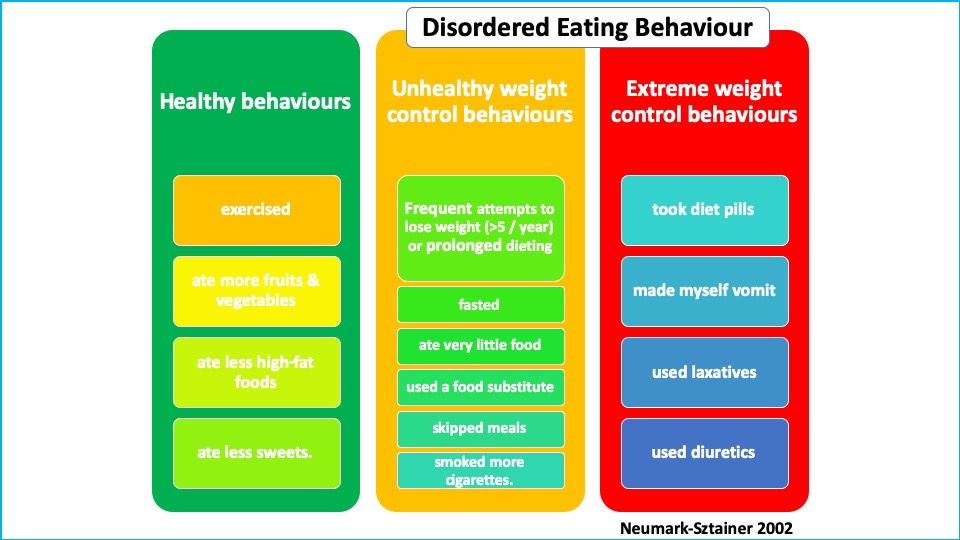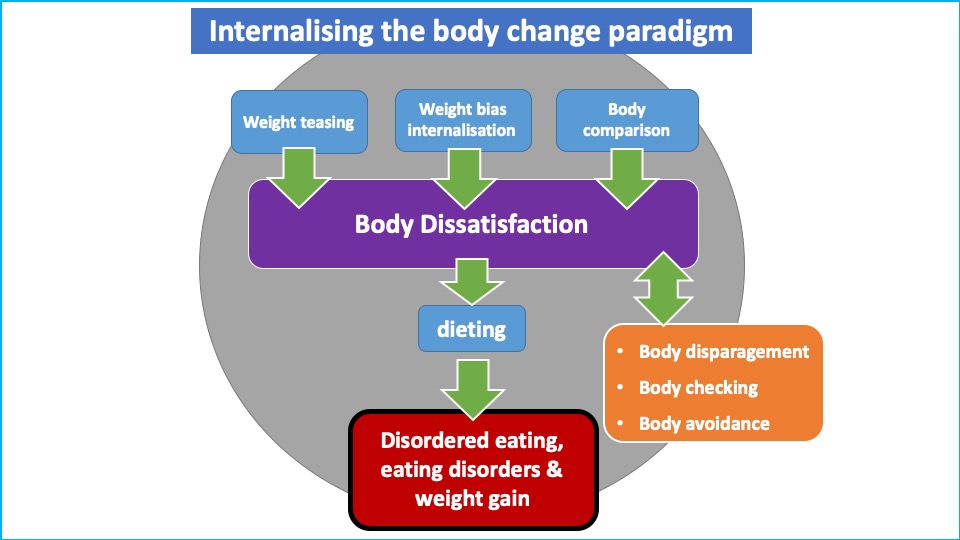Binge Eating and Binge Eating Disorder. Presented by Michelle Roberton, APD
Michelle clarifies the difference between overeating, binge eating and binge eating disorder. “Loss of control over eating” is a subjective term used in the definition of BED, which describes someone’s feelings and compulsion to eat. She looks at the LOCOE scale, which helps quantify aspects of behaviour involved in the loss of control. Loss of control is predictive of poor outcomes in both objective and subjective binge eating.
How binge eating develops and maintains in a person is explained using three factors:
- Dietary restriction (restriction, starvation, numbing, emotion, regulation)
- Restraint mindset (restraint deprivation mindset, control/over-regulation)
- Negative mood (trauma triggers, hypo/hyper arousal, interpersonal)
Michelle explores the concept of body dissatisfaction which is triggered when a person buys into the idea of believing they would be a better person if they could change their body. Body dissatisfaction predicts disordered eating and eating disorders. Michelle talks about the constructs of weight bias and weight stigma and describes their negative health consequences.
Michelle explains the dietitian’s important role as an early identifier in eating disorders. Screening clients is a necessary part of our work. She gives examples of several suitable tools which we can use in developing our screening practise.


Michelle has over 30-years’ experience in eating disorders care and is the Manager of CEED -The Victorian Centre of Excellence in Eating Disorders. At CEED Michelle works in case consultation, service development and in the education of health professionals about disordered eating. She has a unique understanding of the challenges faced by dietitians working with clients experiencing disordered eating.
To register for the presentation and associated documents including the assessment quiz click here